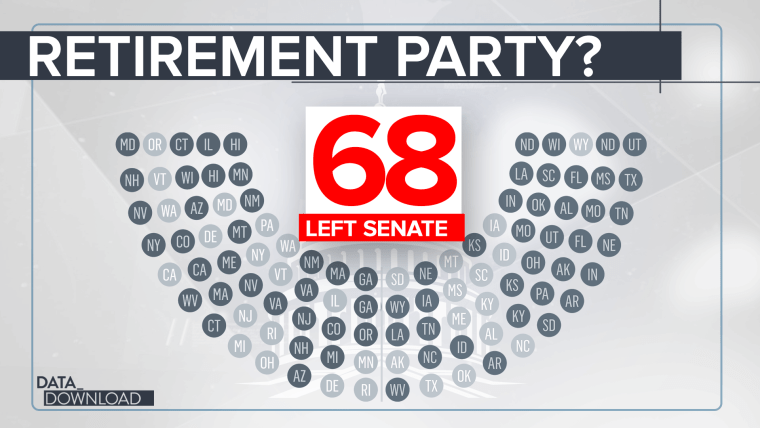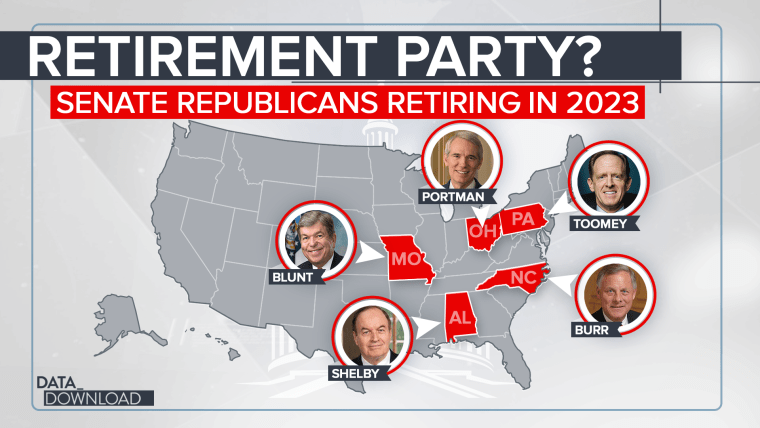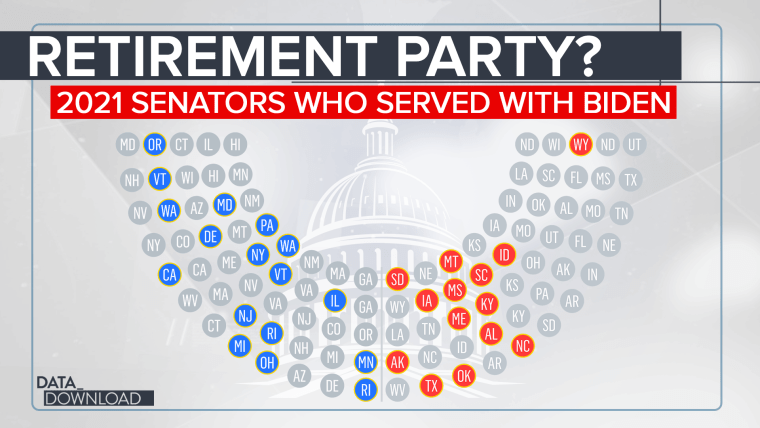WASHINGTON — Presidents come to town hoping to push through a bipartisan agenda before they run into the reality of a divided Washington, but some people believed Joe Biden's experience in the Senate and his knowledge of its personalities meant it might be different this time.
It doesn't look like it so far. Biden's first major victory in Congress, the $1.9 trillion Covid-19 relief bill, came on a straight party-line Senate vote. Issues like immigration and health care don't look like they will be any easier.
The result, however, may have less to do with Biden than with the changing nature of the Senate itself. The numbers show that this is not Joe Biden's Senate anymore, and the last few weeks provided more evidence that more change is coming.
The last time Biden served in the Senate full time was 13 years ago, back in 2008, before he became Barack Obama's vice president. And a very different group of people were in the Senate.

Two-thirds of the current senators did not serve with Biden in the upper chamber — only 31 have ever worked with Sen. Joe Biden.
If Biden hoped to be able to build bipartisan bridges, he was left with a much smaller group of potential partners. More than half of the departed senators with Biden connections were Republicans. And some of them — John McCain, Richard Lugar, John Warner, Olympia Snowe — were Republicans with reputations for working across the aisle.
That brings us to Republican Roy Blunt of Missouri, who recently announced that he would not seek another term. His impending departure means five Republicans are bowing out in the 2022 midterm elections.

Blunt joins Richard Shelby of Alabama, Richard Burr of North Carolina, Rob Portman of Ohio and Pat Toomey of Pennsylvania. They are not all necessarily champions of bipartisanship. Some are fairly conservative, but they largely represent the governing arm of the GOP, the more policy-driven part of the party.
And that part of the GOP has been in retreat for a while.
The Republican voices in the Senate have changed a lot since just 2016, when Donald Trump won the White House for the GOP.

About 25 percent of the Senate Republicans, 13 of them, arrived with Trump in 2017 or have won their seats since then. Most have brought a more defiant, Trumpian tone with them.
There are exceptions, of course, such as Mitt Romney of Utah, but more are in the mold of Josh Hawley of Missouri, Tommy Tuberville of Alabama and Marsha Blackburn of Tennessee, who sought Trump's endorsement and used it to win.
And with the five announced Republican departures in 2022, the post-Trump GOP figure in the Senate is set to climb. It could reach 35 people — or more.
All of which is to say the Biden administration might want to get used to the path it took to pass the Covid-19 relief bill.
The initial hopes about Biden's being able to build bridges were based in part on a Senate that does not really exist anymore. And even if the Democrats defy historical trends and hold on to or grow their majorities in both houses of Congress in the midterms next year, the path to bipartisanship does not look like it is going to get any easier.